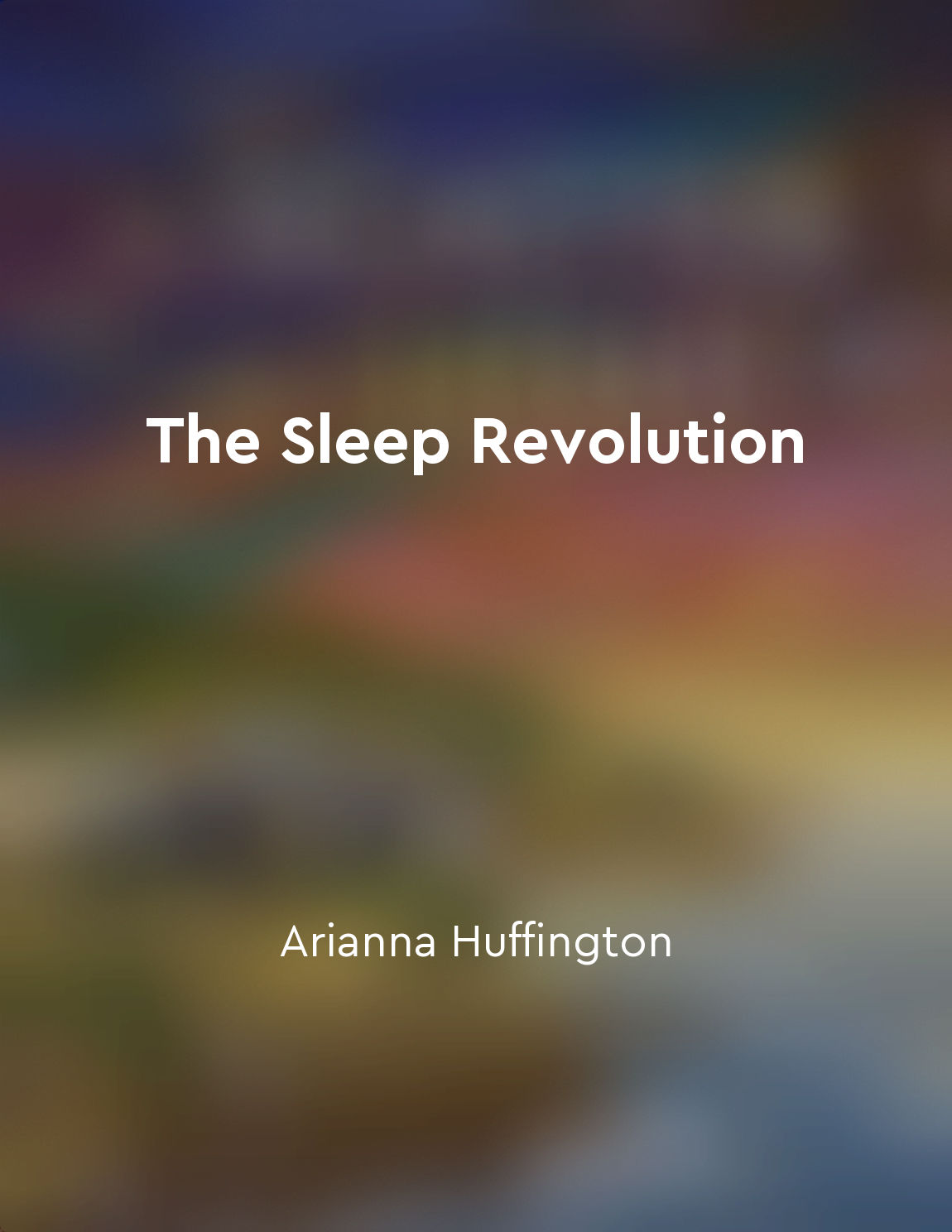Audio available in app
Social jet lag can disrupt the body's natural sleepwake cycle from "summary" of The Sleep Revolution by Arianna Huffington
Social jet lag is a phenomenon that occurs when people's sleep schedules on workdays are drastically different from their sleep schedules on weekends. This disruption can wreak havoc on our body's natural sleep-wake cycle, throwing off our internal clock and making it difficult to fall asleep and wake up at consistent times. This misalignment can lead to a host of negative consequences, from grogginess and irritability to more serious health issues like obesity, diabetes, and heart disease. When we experience social jet lag, our bodies are essentially being forced to adjust to two different time zones every week – one for workdays and one for weekends. This constant shifting can confuse our internal clock, known as the circadian rhythm, which regulates our sleep patterns, hormone levels, and other bodily functions. As a result, we may find ourselves struggling to fall asleep on Sunday nights and dragging ourselves out of bed on Monday mornings. Our bodies thrive on consistency, especially when it comes to sleep. By maintaining a regular sleep schedule, we allow our circadian rhythm to function optimally, ensuring that we get the restorative rest we need to stay healthy and alert. However, social jet lag disrupts this delicate balance, making it harder for us to achieve the deep, restful sleep that is crucial for our overall well-being.- Hyper-connected world, it's all too easy to fall into the trap of social jet lag. We may feel pressured to stay up late on weekends to socialize or catch up on work, only to pay the price when Monday morning rolls around. But by prioritizing our sleep and making an effort to stick to a consistent sleep schedule, we can help minimize the impact of social jet lag and ensure that we are giving our bodies the rest they need to thrive. Ultimately, by recognizing the harmful effects of social jet lag and taking steps to address them, we can reclaim control over our sleep and improve our overall health and well-being.


